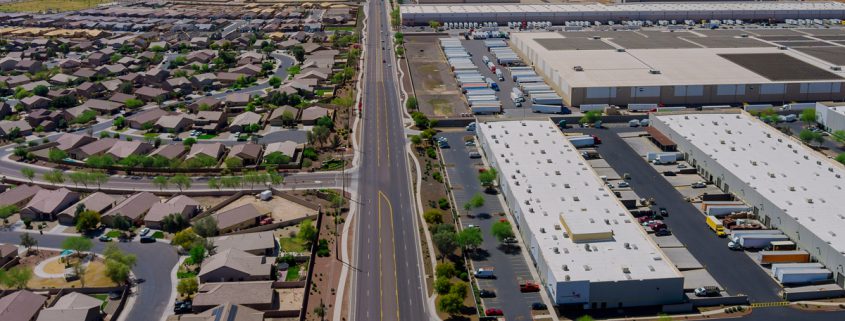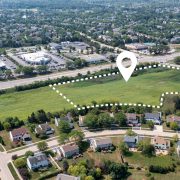The Good Neighbor Policy, the Zombie from Sacramento
California Assembly Bill 1000 (AB 1000), also known as the Good Neighbor Policy, was resurrected from the corpse of AB 2840. With an aim to protect California communities and improve air quality, the bill would limit, or in some cases, stop the development or expansion of warehouses over 100,000 square feet within 1,000 feet of sensitive receptors such as schools, homes, parks and daycare providers. AB 2840 focused on the Inland Empire area of Southern California while the zombie from Sacramento (AB 1000) expanded its threat to all of California.
AB 1000 was introduced in February by California Assembly Majority Leader Eloise Gómez Reyes. She also penned AB 2840 in 2022, where it later died in the State Senate last June. NAIOP, the Commercial Real Estate Development Association, a leading national organization for CRE, was adamant about the damage AB 2840, would cause, and is equally concerned about AB 1000.
“Assemblymember Reyes has again introduced legislation, AB 1000, that would effectively ban the construction of any warehouse or logistics facility in the state of California that are within 1,000 feet of a ‘sensitive receptor.’ AB 1000 will kill jobs, curb critically needed housing, usurp local control, harm the supply chain, and worsen emissions due to more vehicle miles traveled,” said SoCal CEO Timothy Jemal of NAIOP in a written statement.
According to Reyes, AB1000 should not be seen as an attack on warehouse development, but a fair approach that will not only protect communities, but also offer a chance for a project to show its commitment to being a good neighbor and allow vulnerable residents and the community to manage these large projects.
While there’s no doubt that the boom in warehouse construction has had an impact on the air quality in the Inland Empire, the negative impact of the bill would be catastrophic for our regional and national supply chain, jobs and the economy, and in fact worsen emissions, creating more pollution, according to some advocacy groups.
Business Properties Association (CBPA), an organization that advocates for all aspects of the commercial retail industrial real estate industry in California, said AB 1000 removes authority from local government and is a de facto ban on new facilities in most parts of the state. It will create job losses, stop new housing projects, and push these projects to less urbanized areas of the state inducing greenfield development that will induce more vehicle miles traveled, more greenhouse gases, and more particulate pollution.
In 2022, NAIOP led the opposition against AB 2840 by generating thousands of emails and phone calls to state legislators in opposition to the bill which resulted in its death. But, as we all know, zombies never sleep… and here we are again. According to Jemel, similar action will be needed again if we want to stop this reanimation.
“We will, again, need strong grassroots support of our members and close collaboration with other associations including the California Business Properties Association (CBPA) and California Chamber of Commerce. Additionally, we will continue to partner with our allies in organized labor and other community groups in educating lawmakers on the harm AB 1000 would do to Southern California’s vibrant logistics hub,” Jemel said in a written statement.
In 2022, the CRE community rallied in opposition to AB 2840. However, when dealing with reanimation, you must always be prepared for a zombie reappearance. Indeed, it is imperative that the industry unites again in voicing their concern about this bill and ensure logistics projects with merit are allowed to move forward without the negative impacts of proposed zombie legislation.
Visit the California Legislative Information website to read the proposed bill.









